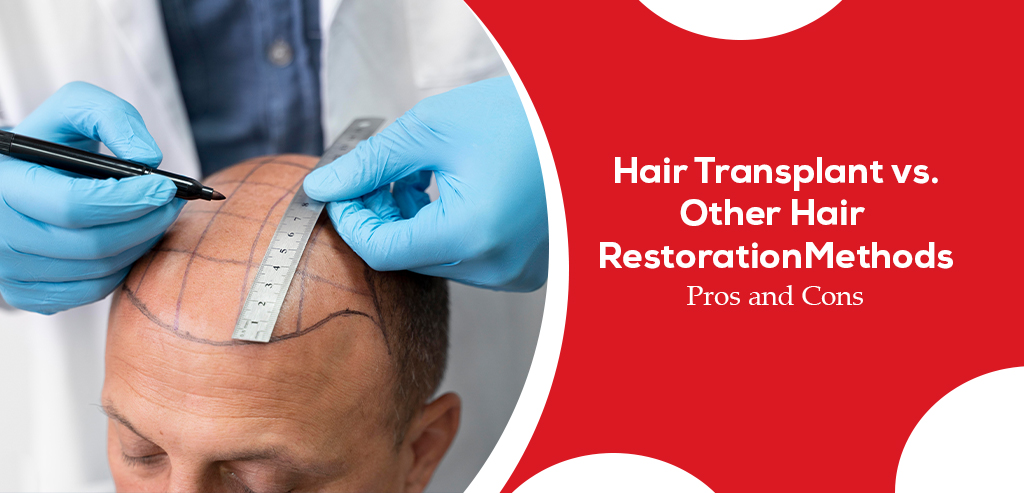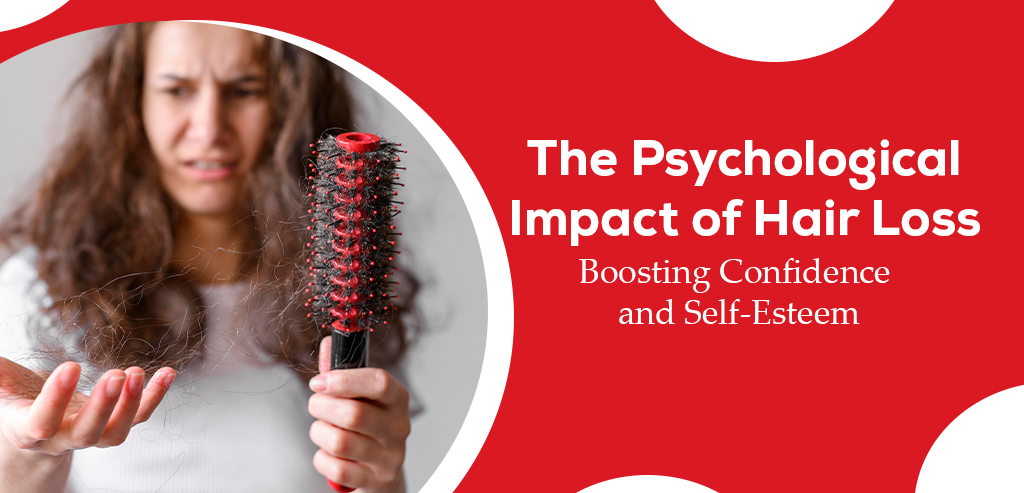Hair loss can significantly impact one’s confidence and self-esteem. Fortunately, various hair restoration methods are available to address this concern. Want to know if the hair transplant in Guwahati is safe or not? Here, we will compare hair transplant with other common hair restoration methods, highlighting their pros and cons. By understanding the advantages and limitations of each approach, individuals experiencing hair loss can make informed decisions about the most suitable option for their needs.
Hair Transplant
Hair transplant is a surgical procedure that involves removing hair follicles from a donor area and transplanting them into areas of thinning or balding. Here are the pros and cons of hair transplant:
Pros:
Permanent Results: Transplanted hair is typically resistant to the effects of hair loss, offering a long-lasting solution.
Natural Appearance: Skilled surgeons can create a natural-looking hairline and blend transplanted hair seamlessly with existing hair.
Customized Approach: Hair transplant procedures can be tailored to the individual’s needs, allowing for personalized outcomes.
Cons:
Surgical Procedure: Hair transplant is an invasive procedure that requires a recovery period and may carry risks associated with surgery.
Cost: Hair transplant can be relatively expensive, especially for extensive hair loss cases.
Donor Area Limitations: The success of a hair transplant relies on having an adequate donor area with healthy hair follicles.
Medications
Medications are commonly used to slow down hair loss or stimulate hair regrowth. Two primary medications for hair loss treatment are minoxidil and finasteride. Here are the pros and cons of medications:
Pros:
Non-Invasive: Medications are non-surgical and can be applied topically or taken orally.
Widely Available: Medications for hair loss are easily accessible and can be obtained with a prescription or over-the-counter.
Cost-Effective: Compared to surgical procedures, medications are generally more affordable.
Cons:
Variable Results: The effectiveness of medications can vary among individuals, and results may not be as significant as with a hair transplant.
Continuous Usage: Medications typically require long-term, consistent use to maintain results. Discontinuing use may lead to hair loss resuming.
Potential Side Effects: Some individuals may experience side effects such as scalp irritation, dryness, or sexual dysfunction with certain medications.
Low-Level Laser Therapy (LLLT)
LLLT utilizes low-level laser devices or combs to stimulate hair growth. Here are the pros and cons of LLLT:
Pros:
Non-Invasive: LLLT devices are non-surgical and can be used at home or in professional settings.
Safe and Painless: LLLT is generally considered safe and painless, with no known significant side effects.
Convenient: LLLT devices offer a convenient option for hair restoration, as they can be used regularly at the user’s convenience.
Cons:
Limited Efficacy: While LLLT has shown promising results for some individuals, the effectiveness can vary, and significant regrowth may not be achieved for everyone.
Time and Commitment: Consistent and regular use of LLLT devices is necessary to maintain any potential benefits, which may require a long-term commitment.
Cost: LLLT devices can be relatively expensive upfront, although they may be more cost-effective compared to surgical procedures in the long run.
Scalp Micropigmentation (SMP)
SMP is a non-surgical procedure that involves tattooing the scalp to simulate the appearance of hair follicles. Here are the pros and cons of SMP:
Pros:
Non-Invasive: SMP does not involve surgery and is generally considered safe with minimal risks.
Immediate Results: SMP can provide immediate visual improvement in the appearance of a fuller head of hair.
Conceals Balding Areas: SMP can effectively camouflage areas of hair thinning or baldness, providing a natural-looking appearance.
Cons:
Temporary Solution: SMP is not a permanent hair restoration method and may require touch-ups over time to maintain the desired appearance.
Limited Hairline Variations: The customization options for hairline design may be more limited compared to a hair transplant.
Tattooing Considerations: SMP involves tattooing the scalp, and individuals should carefully consider factors such as color matching, expertise of the practitioner, and the potential for fading over time.
Conclusion
Choosing the right hair restoration method requires considering individual preferences, expectations, and the extent of hair loss. The best hair loss treatment in Guwahati offers permanent and natural results, while medications, LLLT, and SMP provide non-invasive alternatives with varying efficacy. Consulting with a qualified professional can help determine the most suitable option to regain confidence and address hair loss concerns.

